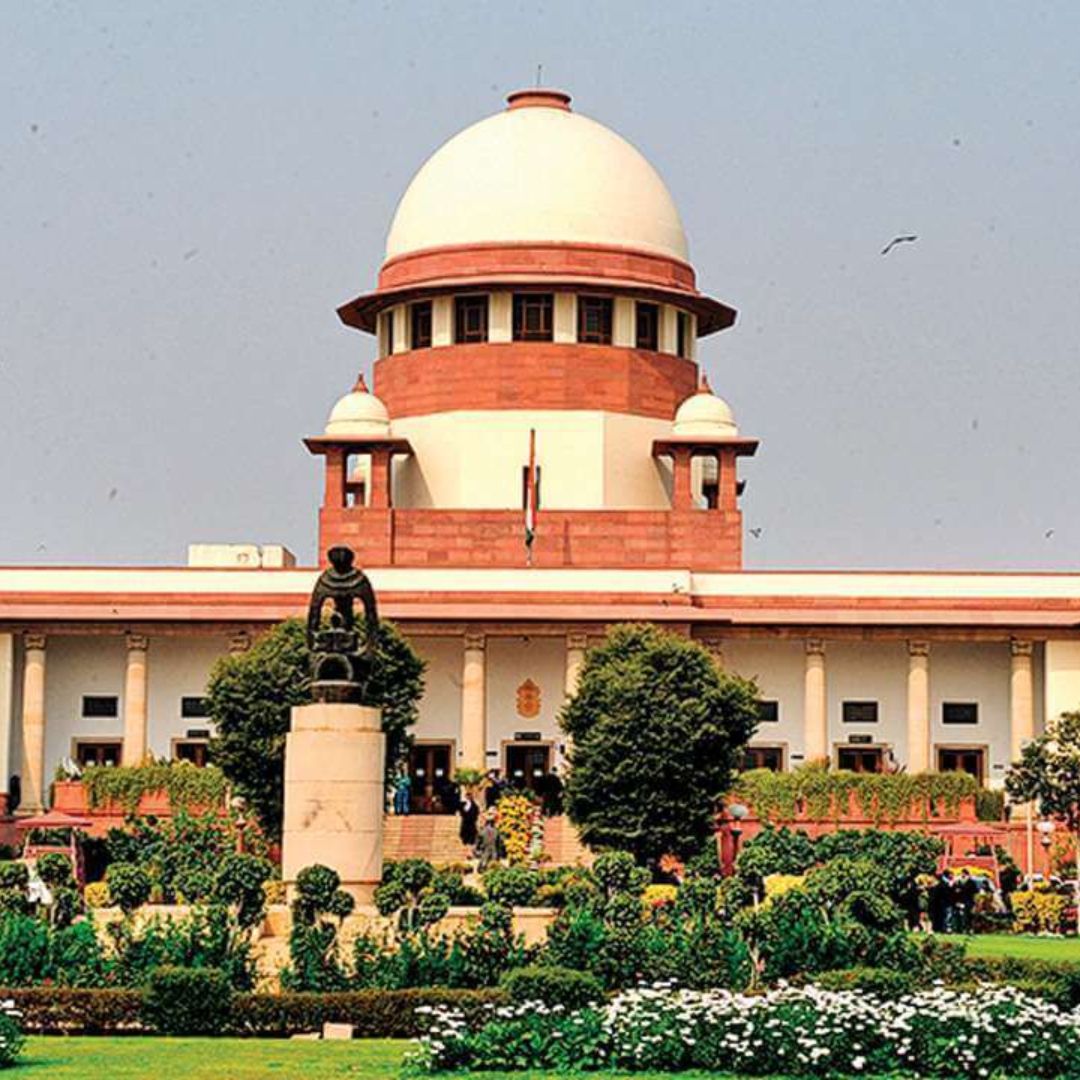
Image Credit- Wikipedia
'Appointment On Compassionate Ground Is Concession, Not A Right': Supreme Court
Writer: Shiva Chaudhary
A post-graduate in Journalism and Mass Communication with relevant skills, specialising in content editing & writing. I believe in the precise dissemination of information based on facts to the public.
India, 4 Oct 2022 7:08 AM GMT
Editor : Snehadri Sarkar |
While he is a massive sports fanatic, his interest also lies in mainstream news and nitpicking trending and less talked about everyday issues.
Creatives : Shiva Chaudhary
A post-graduate in Journalism and Mass Communication with relevant skills, specialising in content editing & writing. I believe in the precise dissemination of information based on facts to the public.
As per the law in place by the Supreme Court on the appointment on compassionate grounds, all aspirants shall be provided with an equal opportunity for all government vacancies as mandated under Articles 14 and 16 of the Constitution.
The Supreme Court of India has observed that the appointment on compassionate grounds is a concession, not a right. It added that the objective of providing such employment is to help the affected family to get through the unexpected crisis.
The SC last week laid aside the ruling of a division bench of the Kerala High Court, which confirmed the judgement of a single judge ushering the Fertilisers and Chemicals Travancore Ltd and others to consider the case of a woman for appointment on compassionate grounds, reported NDTV.
What Was The Case?
A bench of Justices MR Shah and Krishna Murari noted that the woman's father was employed with the Ltd company and died in April 1995 while on duty. At the time, his wife was serving and was not qualified for an appointment on compassionate grounds.
The Kerala HC bench stated, "After a period of 24 years from the death of the employee, the respondent shall not be entitled to the appointment on compassionate grounds."
As per the law in place by the Supreme Court of India on the appointment on compassionate grounds, all aspirants shall be provided with an equal opportunity for all government vacancies as mandated under Articles 14 and 16 of the Indian Constitution. Herein Article 14 deals with equality before law while Article 16 with equality of opportunity concerning public employment.
The HC bench stated in its ruling on September 30, "However, appointment on the compassionate ground offered to a dependent of a dead employee is an exception to the said norms. The compassionate ground is a concession and not a right."
Appointment On Compassionate Grounds
The SC mentioned that in 1995 when the employee died, his daughter was a minor and after attaining the age of majority, she applied for an appointment on compassionate grounds. Further, it noted that after around 14 years of the employee's death, his daughter had submitted an application on the grounds, as mentioned earlier.
In reference to the previous judgements of the apex court, the bench stated that according to the law, compassionate appointment is an exception to the general regulation of appointment in public services. It favours dependants of a person dying in harness while leaving his family in poverty and without any means of livelihood.
The court said that in such cases, out of pure humanitarian regard, a provision is made in the regulations to provide to one of the deceased employee's dependents who may be eligible for such employment.
The bench stated, "The whole object of granting compassionate employment is, thus, to enable the family to tide over the sudden crisis. The object is not to give such family a post, much less a post held by the dead employee."
SC Laid Aside The Kerala HC Judgement
Allowing the appeal registered by the Fertilizers and Chemicals Travancore Ltd and others against the March 2022 ruling of the Kerala High Court, the bench said that if such an appointment is made now, it shall be against the objective and purpose for which appointment on compassionate ground is given.
Laying aside the Kerala HC judgement, it said that in ordering the appellants to reconsider her case for appointment on compassionate grounds, both the single judge and the division bench had erred.
The bench noted that her request for a compassionate appointment had been turned down in February 2018 because her name was not included on the deceased employee's list of dependents and that it was company policy to hire the widow, son, or unmarried daughter of an employee instead.
Further, it noted that in December 2019, the appellants had again rejected her application for appointment on compassionate grounds because 24 years had lapsed since the employee's death. The bench mentioned it did not comply with the primary test of a scheme that the deceased employee should be the "sole breadwinner of his family" as his wife was gainfully employed with the Kerala State Health Services Department at the time of his death.
 All section
All section














